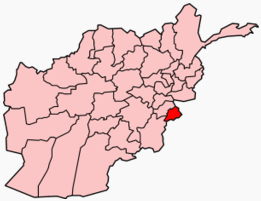On Wednesday, December 30, it was announced that a suicide bomber hit Forward Operating Base Chapman in Afghanistan’s Khost Province, killing eight American “civilians” in the base’s gym.
 This story didn’t last long, as officials admitted by the end of the day that the “gym” was a top secret CIA surveillance center, and the eight killed were all CIA affiliates. The story and the contest among militant factions to claim credit for the attack has left the story shrouded in mystery.
This story didn’t last long, as officials admitted by the end of the day that the “gym” was a top secret CIA surveillance center, and the eight killed were all CIA affiliates. The story and the contest among militant factions to claim credit for the attack has left the story shrouded in mystery.
But the most bizarre turn came today, when the Jordanian government came out today and officially denied any “links” to the bombing. The denial came after an email, ostensibly from Tehreek-e Taliban Pakistan (TTP) leader Hakimullah Mehsud, claimed that the attacker was a Jordanian in their employ.
Officials acknowledge that the Jordanian government is playing an increasingly vital role in CIA operations in both Yemen and Afghanistan, and is depended on for their “expertise with radical militant groups,” and interrogation of detainees.
And Jordan’s link to the site appears to have been non-trivial, as the “eight Americans” was later revised to seven Americans, with the eighth victim a captain in the Jordanian intelligence service. The Jordanian, who is a distant relative of the nation’s royal family, was among Jordan’s tiny 90-man commitment to the war, and the first casualty. The Jordanian government initially claimed he was killed on a “humanitarian mission.”
But this raises even more questions than it answers. Why was a Jordanian spy at one of the CIA’s most sensitive installations? If the claim of Jordanian involvement was just another baseless allegation from a militant, why the quick and public denial? Officials remain tight-lipped as ever over the Khost attack, and the identity of the bomber, who officials have said was invited to the base as an informant, remains shrouded in mystery.





Jordan is nexst target of Zionist after yamen. This is a series of drams to create selfmade terror attack to create the true Israel state and final new world order every one know you cannot make us fool.
hash gowipe yor ass on your keron you rag head and eat some pork fat